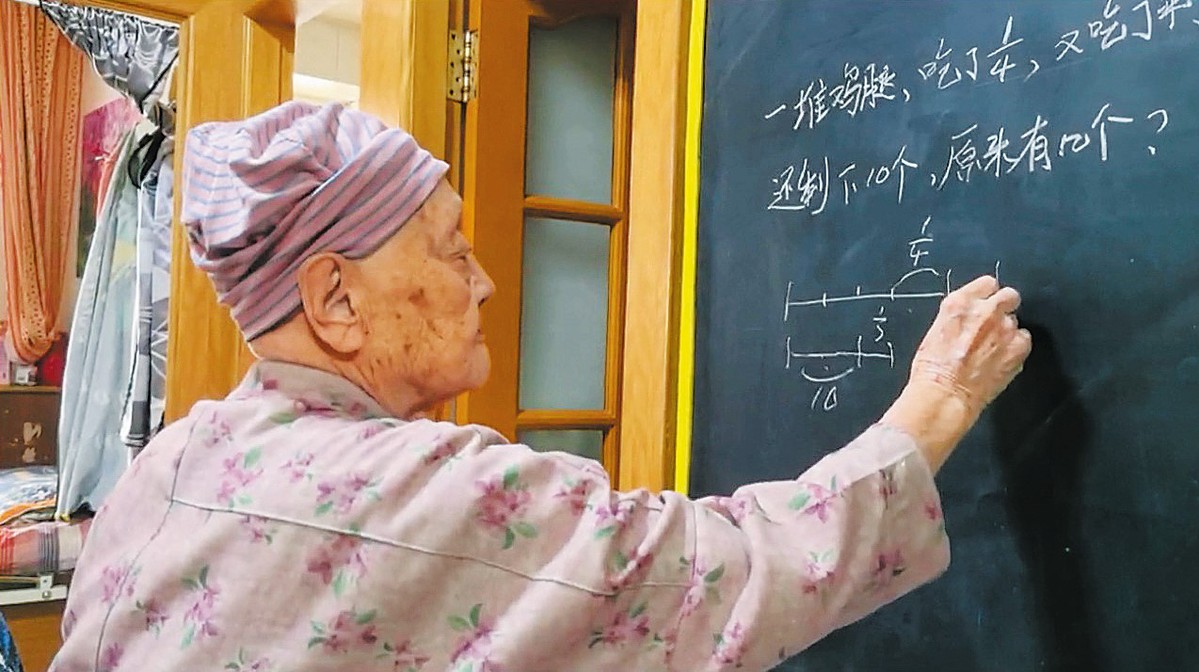Elderly people should consider new careers


When a Beijing company recently advertised a number of low-end job vacancies tailored for retired people, little did it realize it would be "bombarded" with applications. Within days, more than 500 applications were submitted in the form of letters, e-mails, phone calls and even physical visits without appointment. Reading the applicants' resumes, the company's HR manager felt he could open a university by employing these people.
With 22 percent of its 1.4 billion population aged 60 or above by the end of 2024, China has been making continuous efforts to ensure elderly people enjoy a decent retired life. The government has increased pensions for 21 consecutive years, and provided special benefits for elderly people, including free bus rides and free entry to parks. But it's only recently that the government realized it needs to do more to increase elderly people's sense of belonging.
Although China has been gradually extending the retirement age, most Chinese people now retire between 50 and 60 years depending on their gender and the profession they are in. Demographers believe that as a consequence of the baby boom in the 1960s, an average of 20 million people in China will retire each year between 2021 and 2031.
This means that five years from now, the number of retired people in China will exceed 100 million. Such a huge number of people can be a heavy burden on the country's welfare and pension systems. Yet it can also become a blessing for China's development, albeit only if human resources are used properly and efficiently.
By 2024, life expectancy in China reached 79 years, close to that in developed countries, where, in general, people retire between the age of 65 and 68, and government policies encourage them to be gainfully employed even after retiring. While visiting foreign countries, we have often been embarrassedly served or attended to by elderly people in hotels, restaurants and shops. They seem happy communicating with guests and customers while making some money.
In China, jobs tailored for the aged people are rare largely because the country has never been short of workers. When thousands of university graduates are seeking jobs and millions of rural laborers are migrating to cities and towns in search of better paying jobs, few would care to create tailor-made jobs for retired people.
Even though some employers are willing to offer jobs to elderly people, they are held back by the lack of sufficient policy support, including buying pension and medical insurance for people who take up jobs after retirement. As a way out, instead of an employment contract, a simple labor service contract is offered to elderly employees. Signing such a contract means the applicant agrees to give up the right to many of the benefits a regular employee enjoys.
China's declining population growth rate has raised concerns over labor shortage in the near future. These concerns, along with the appeals from retired people, prompted the government to consider introducing policies specifically related to elderly people. Earlier this year, 19 central government departments jointly published a guideline to encourage senior citizens to actively involve themselves in social development.
The guideline says that by the end of 2029, a new employment policy should be drafted to enable elderly people to more actively participate in social activities, and help improve policies and regulations that impede such participation.
If jobs can be tailored to the needs of the aged people, such as flexible working hours, they might be attractive to more than 100 million Chinese people aged between 50 and 70. Many of those who are part of this group are well-educated, experienced and in good health. By rejoining the workforce, the elderly people can provide some relief to the government, which is overwhelmed by concerns over the falling birth rate, labor shortage and insufficient pension funds.
Instead of singing in a chorus or indulging in "square dancing" to kill time as I do now, I prefer joining the younger generation to do my remaining bit for the country and society. Money, of course, matters, and I am not against the idea of earning some money for my family.
The author is former deputy editor-in-chief of China Daily.
kangbing@chinadaily.com.cn


































